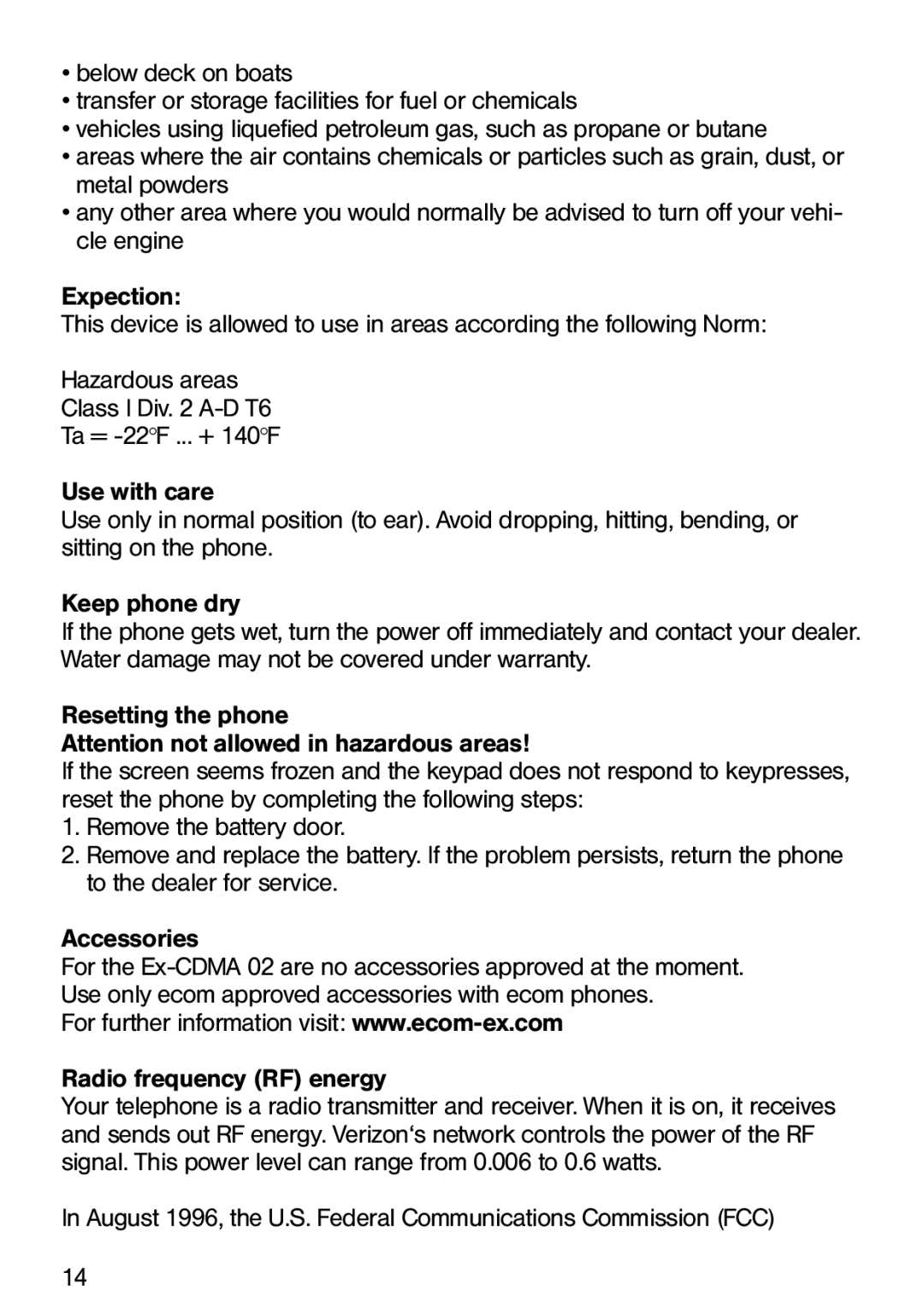•below deck on boats
•transfer or storage facilities for fuel or chemicals
•vehicles using liquefied petroleum gas, such as propane or butane
•areas where the air contains chemicals or particles such as grain, dust, or metal powders
•any other area where you would normally be advised to turn off your vehi- cle engine
Expection:
This device is allowed to use in areas according the following Norm:
Hazardous areas
Class I Div. 2
Ta =
Use with care
Use only in normal position (to ear). Avoid dropping, hitting, bending, or sitting on the phone.
Keep phone dry
If the phone gets wet, turn the power off immediately and contact your dealer. Water damage may not be covered under warranty.
Resetting the phone
Attention not allowed in hazardous areas!
If the screen seems frozen and the keypad does not respond to keypresses, reset the phone by completing the following steps:
1.Remove the battery door.
2.Remove and replace the battery. If the problem persists, return the phone to the dealer for service.
Accessories
For the
For further information visit:
Radio frequency (RF) energy
Your telephone is a radio transmitter and receiver. When it is on, it receives and sends out RF energy. Verizon‘s network controls the power of the RF signal. This power level can range from 0.006 to 0.6 watts.
In August 1996, the U.S. Federal Communications Commission (FCC)
14
